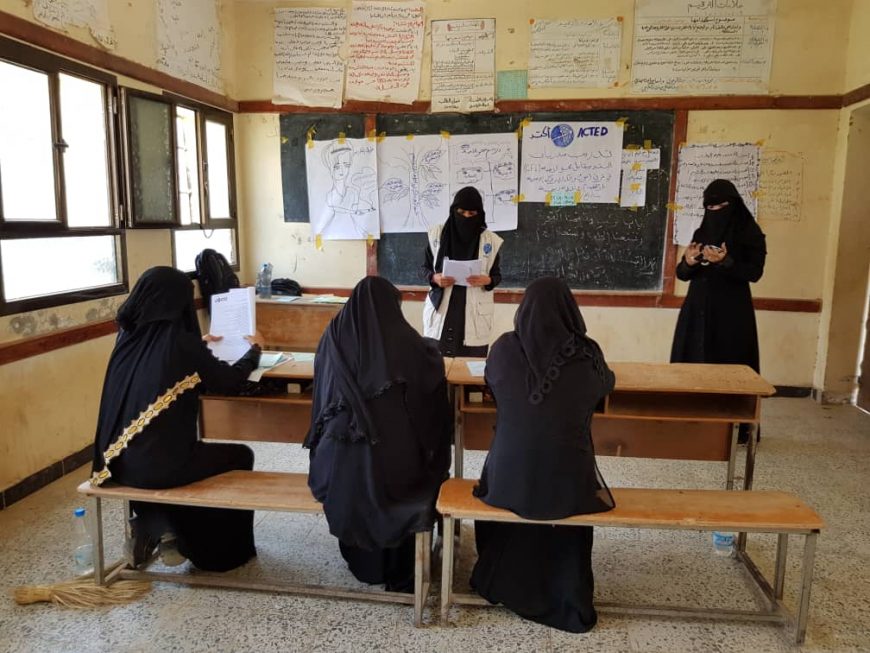With its ornate stone houses, lush terraces, and water pools, Raymah governorate became famous as Yemen’s Eden. While its location deep in mountains initially spared it from the most direct impacts of the conflict, basic needs such as food, water and shelter persist and worsen each day that the fighting continues.
In 2019, according to the World Bank Report and the UN:
To tackle this, ACTED conducts a range of tailored programming to alleviate food insecurity from emergency food provisions to more sustainable support such as livelihood assistance and Cash for Literacy activities.
Safa, 34, lives, with her four children, in Al Jafariyah district, Raymah governorate. Her husband was killed in an airstrike that hit the factory in which he worked in March 2015.

Our life was stable when my husband was alive,” Safa said, “but war turned our life upside down. It took away any sense of stability, leaving us without a husband and a father. The house feels like it lost its very foundations and could collapse at any time.
The breakdown of the Yemeni economy has forced many families in Yemen to resort to negative measures to survive, such as selling of livestock and child marriage. Malnutrition remains rife. To cope with these conditions, Safa reduced the number of daily family meals to one or two. “Our main dish, most of the days was only bread and tea” said Safa. World Food Programme (WFP) statistics shows that Raymah has the highest percentage of families resorting to such negative measures with the highest percentage of families reducing meals and limiting portion sizes
The extremely low literacy rates among communities in Raymah is one of the many factors which create barriers for their entry into the workforce. The situation is particularly bad for women. Part of ACTED’s assistance thus took the form of ‘Cash for Literacy’ (CfL) which meant giving support to literate female community members so that they could teach literacy courses to other women.
Safa was one of 33 beneficiaries selected for the Cash for Literacy program in Al Jafariyah district. Safa, a secondary school graduate with teaching experience, participated in the programme as one of three skilled “Supervisor” participants. She was then responsible for providing literacy classes in her area for four months for 10 days each month, receiving a salary which could help her meet her family’s food needs. The topics also cover a number of important messages on essential health topics and hygiene practices which serves to increase the women’s awareness while also teaching them to read and write.
When asked why she wanted to join this programme, Safa explained that it was “To eliminate illiteracy within my society and to eliminate many problems that arise in the society because of illiteracy”.
By the end of the project, Safa supported an estimated one hundred women in her area to gain critical literacy skills.
I have benefited a lot from the activity, I acquired many skills on teaching methods and how to support women to improve their literacy. I trained illiterate women on skills of reading and writing and computer skills, as well as introduce them to life skills such as breastfeeding and hygiene practice.